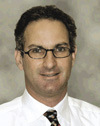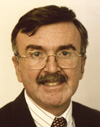Archive » 2003 » Issue 12 (July/August)
Swiss banks face level playing field
01 August, 2003
There’s a lot for Europe’s private bankers to think about, especially as Geneva and Zurich are set to lose their traditional headstart.
|

|
Gemes: clients feel pushed around |
Clients want more open architecture
01 August, 2003
Private bank customers are unhappy with the fund choices on offer, writes Roxane McMeeken.
European private banking clients are dissatisfied with the levels of open product architecture practised by their banks. Investors have become wary of in-house products and believe that even when their banks do offer an open architecture proposition, they fail to deliver fully objective advice. These are the findings of the latest survey from information provider Reuters and global management consultant Booz Allen Hamilton.
|
Market watch
01 August, 2003
CSAM’s trouble at the top
Credit Suisse Asset Management (CSAM) has focused on expanding its hedge funds. Worried about clients switching to rivals, Jeff Peek, vice-chairman of parent institution, Credit Suisse First Boston, transferred the investment bank’s star bond trader Jack di Maio to run a single strategy hedge fund for CSAM. Assets of up to $1bn (E895m) will be raised by August, said Mr Peek.
|
Fund briefs
01 August, 2003
Dexia releases ethical ETF to Paris exchange
TrackinDex, a new socially responsible exchange-traded fund from Dexia which replicates the performance of the Dow Jones Stoxx Sustainability index, has been listed on the Euronext exchange in Paris.
|
Why advisers should never work alone
01 August, 2003
Financial advisers are often asked to be all things to all people. They are required to perform the roles of tax planner, pensions expert, life assurance adviser and investment professional.
|
Euro briefs
01 August, 2003
Distributors swap stories from inside the business
Jorg Brock, Commerzbank’s head of private client product development, will share the experiences of German distributors with his European peers at PWM’s Open Architecture Forum, to be held in London on October 8.
|
Spain’s potential catches the eye of Swiss bank
01 August, 2003
Pictet opens office in Madrid to target clients of a tough but less explored market. Yuri Bender reports.
|

|
Mullane: it’s ‘like herding cats’ |
Efficiency now, pay later
01 August, 2003
Trema study shows that systems providers need to offer clients more.
“Itook a look at the private banking space and quite quickly found a huge void,” says Ian Mullane, recently appointed as head of global sales and client relationships at software solutions provider Trema.
|

|
Eppinger: third party funds boom |
Cofunds adds banks to its black book
01 August, 2003
IFDS investment injection means the UK fund supermarket can widen its base to include banks as well as IFAs.
UK fund supermarket Cofunds is chasing business from banks for the first time, now that the British wealth advisory market is set for depolarisation.
|
Three steps to European fund sales as easy as C-D-C
01 August, 2003
French funds house gets serious about distribution with three-stage plan.
CDC Ixis Asset Management, the E300bn funds arm of the French banking group, has launched a wide-ranging cross-border distribution strategy to increase its tiny slice of the retail cake.
|
SSgA closes down Fund Solutions
01 August, 2003
State Street Global Advisors has blamed a moribund mutual fund market for its European distribution U-turn. Yuri Bender reports.
|
All grown up now
01 August, 2003
For all the excitement about hedge funds, they only represented a very small part of the European fund scene in early 2002. In spite of, or perhaps because of, the volatility of global financial markets, they have become much more important to investors – but only in some countries. Andrew Hutchings of Sector Analysis explains.
|

|
Wohanka: traits of self-deprecation combined with hidden ambition |
Good soldier draws up fortis battle plan
01 August, 2003
Fortis’ Richard Wohanka knows enough about poaching and trading to be a storybook character himself. Yuri Bender examines his business blueprint.
One of the most famous characters in Czech history is a fictional one. The Good Soldier Svejk, whose adventures during the Great War have gone into the country’s folklore, was a literary creation. Jaroslav Hasek’s worldly-wise folk hero fakes imbecility, is alternately fęted and admonished, and is eventually captured by his own soldiers, enjoying adventure and avoiding conflict at every stage.
|

|
‘Many wealthy clients resent being shifted off to call centres’
Steve Lipper, Reuters |
Customer frustration points to weakest link
01 August, 2003
Private banking survey shows that many clients are unhappy with the quality of service they receive, particularly those aspects of service that can be outsourced. Roxane McMeeken reports.
European private banks are in deep trouble with their clients – and not just because we are experiencing a tricky financial market. Back and middle office systems are letting banks down, leading to customer disappointment in standards of service. This is the conclusion of a recent survey of private banking clients and advisers in Germany, Switzerland and the UK, conducted by the information company Reuters and global management consultants Booz Allen Hamilton.
|
Hedging history: rice to swaps
01 August, 2003
Traditional investments have made room for alternative products, but hedge fund methodology can be traced back to 17th century rice farming in Japan.
|

|
‘Hedge funds have grown in popularity largely because investors have wised up to their benefits and have become increasingly convinced of their robustness’
Francois Hullo, BNP Paribas Asset Management |
A stylish variety of strategies
01 August, 2003
Hedge funds have come a long way due to the development of a broad range of investment choices.
Hedge funds have firmly established themselves as a mature asset class over the last few years and are increasingly being used to provide diversification in the portfolios of high net worth individuals. Today, the worldwide market in hedge funds stands at more than $500bn (E442bn), there are more than 7000 active hedge funds, and the industry is growing at 20 per cent a year —considerably faster than the market for traditional mutual funds.
|

|
‘Currency returns tend not to be correlated with the returns of other asset classes such as equities. This means the effect of adding active currency on the total risk of the client’s overall strategy will typically be low’
Mark Fitzgerald, Barclays Global Investors |
Fruitful sources of return
01 August, 2003
Whether because it is a useful investment strategy in its own right or because it is so effective in balancing an equity-dominated portfolio, currency management opens up options for the investor.
The broad decline in equity markets during the past few years has led many investors to diversify their portfolios, with some looking at the opportunities available in alternative investments. Although equity market neutral funds have become one of the most popular investor strategies, there is also a wide array of other types of alternative investments to choose from. One such area that certainly deserves consideration is currency management.
|
Considering alternative arrangements
01 August, 2003
The question of which non-traditional investment to select from a line-up can be easier to answer once advantages and disadvantages have been compared.
|

|
‘While past performance is not necessarily indicative of future results, and hedge funds have at times been at the centre of market turmoil, an allocation to alternative investments can improve a portfolio’s ability to preserve capital and increase wealth’
Gian Luigi Pedemonte, TradingLab |
Science and portfolio stability
01 August, 2003
Of the advantages that hedge funds bring to a portfolio, diversification and risk control are the most valuable. A scientific approach to risk diversification maximises that value.
Alternative investments are distinguished from traditional investments by their regulatory structure. They are normally non-regulated. This endows them with flexibility in investment strategies as well as lower levels of disclosure and high minimum investment requirements. Generally, the minimum investment is around E25,000.
|

|
‘Products in traditional markets are unable, on their own, to fully meet new demands’
Gerhard Koch, DWS Investments |
Discover the positive side to fickle-natured products
01 August, 2003
Investors who put their faith in volatility need the backing of professionally constructed strategies.
With the longer-term yield prospects for traditional forms of investment such as cash, bonds and equities somewhat dented, innovative investment strategies are increasingly moving centre stage. There is now growing demand for alternative product concepts that are largely uncorrelated, offer low price volatility and aim to achieve fairly calculable “absolute” returns. Well-crafted mutual funds, launched in a timely fashion, can exploit gyrations on the stock markets and movements in the international foreign-exchange markets.
|
Investors’ interest rewards companies for good behaviour
01 August, 2003
Simon Hildrey analyses reasons for the renewed popularity of ‘junk bonds’.
High yield bond funds have been one of the most popular and best performing sectors this year. Investors have been flocking into what were once called “junk bonds” for three main reasons:
|

|
‘Many clients do a barbell job and jump straight from nice, safe bonds into ultra-risky equities.’
John Little, Mellon |
Mellon range gives in to high yield pull
01 August, 2003
Global investment company capitalises on Pareto’s American links to run two fund additions. Roxane McMeeken reports
Mellon Global Investments has added two new funds to its multi-manager range in an attempt to capitalise on the expansion of the worldwide high yield bond market.
The firm has chosen US-based Pareto Partners to run the new Mellon Global High Yield Bond Portfolios, available in both euros and US dollars to individual and institutional investors throughout Europe.
|
Panel investments
01 August, 2003
Each month in PWM, six top European asset allocators reveal how they would spend E100,000 in a fund supermarket for a fairly conservative client with a balanced strategy.
|

|
‘It is designed for investors looking for long-term, subtle outperformance’
Zafar Ahmadullah, Schroders |
Skipping ahead of standard
01 August, 2003
Roxane McMeeken reports on Schroders’ fledgling fund, which stresses a stock selection strategy.
A new product in Schroders’ International Selection Fund (SISF) range has attracted the attention of our panel of fund-picking experts (see pages 52-53). The SISF European Equity Alpha fund was launched in January with the idea – gaining considerable currency in current market conditions – of paying little attention to the index.
|

|
‘Real estate offers a potent source of diversification from equities and bonds’
Gerry Blundell, LaSalle |
Income from the fringes
01 August, 2003
Real estate returns, while relatively safe, are likely to shrink in some sectors, writes Roxane McMeeken.
The quest for portfolio diversification will lead European investors to boost their allocations to real estate. While the returns yielded by this asset class are set to slow slightly, it will remain a decent performer and an increasingly popular route to spreading risk.
|

|
‘The hedge fund that loses 50 per cent or more of its investors’ capital is a colourful news story’
Jack Schwager, Fortune |
Human nature to fear risk
01 August, 2003
People behave irrationally about hedge funds because they don’t quite understand how they work.
There is a long-standing belief among asset allocators that traditional investments – i.e. long equities, long bonds (or their mutual fund equivalents) are “conservative”. Hedge fund investments, meanwhile, are considered “high risk”, appropriate only for very wealthy and sophisticated investors.
|
Portfolio Planning
01 August, 2003
In this section of PWM we test the performance and volatility of two investment strategies using model portfolios. Each month we look at two separate baskets of stocks related to these strategies.
|